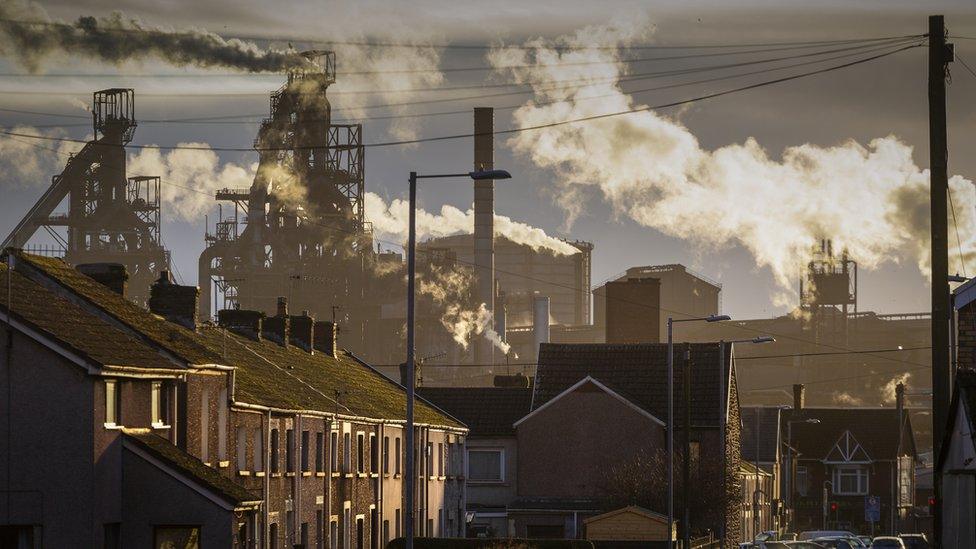Tata Steel: Workers braced for bad news on job losses
- Published
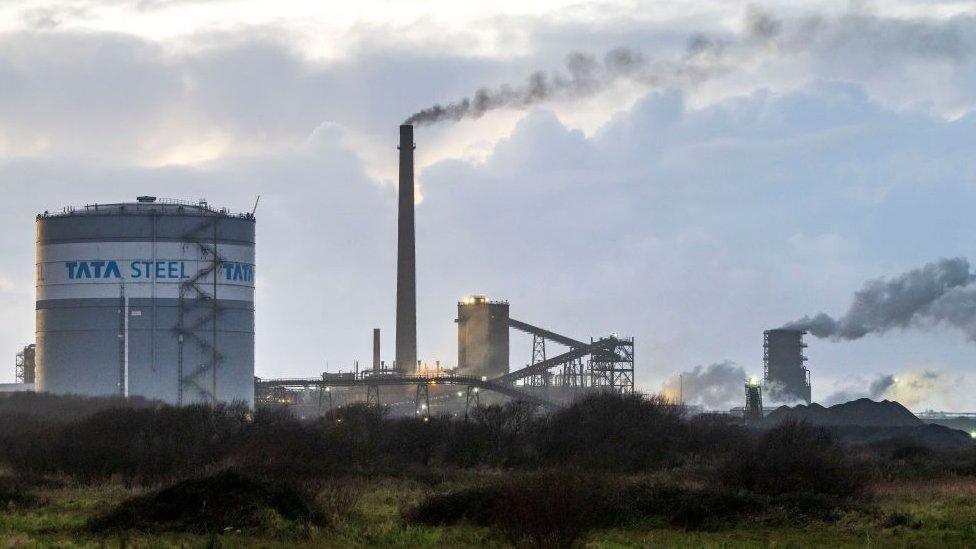
Tata's Port Talbot site employs 4,000 people
Staff at the UK's biggest steelworks are braced for bad news on job losses, a senior union official has warned.
Tata Steel officials will meet with union representatives on Thursday.
The company is expected to reveal whether it will proceed with plans to cut thousands of jobs from its Port Talbot site, or adopt alternative plans to reduce job losses.
Roy Rickhuss, general secretary of Community, said unions were "braced for bad news" but "prepared to fight".
Tata has committed to transitioning to a greener form of steelmaking, which will reduce emissions and stem financial losses from its existing operations.
It has received UK government support to build a new type of furnace which uses renewable electricity rather than fossil fuels to power the melting of scrap steel.
The current method of steel production, which involves melting iron ore at high temperatures, will have to end.
But this would mean making up to 3,000 of its UK workers redundant, most of whom are based at Port Talbot.
The company's initial proposal to proceed quickly with the closure of blast furnace production was met with fierce opposition from unions.
Unions put forward their own proposals, which would reduce the impact on jobs.
Mr Rickhuss said unions were "determined to maintain steelmaking in Port Talbot".
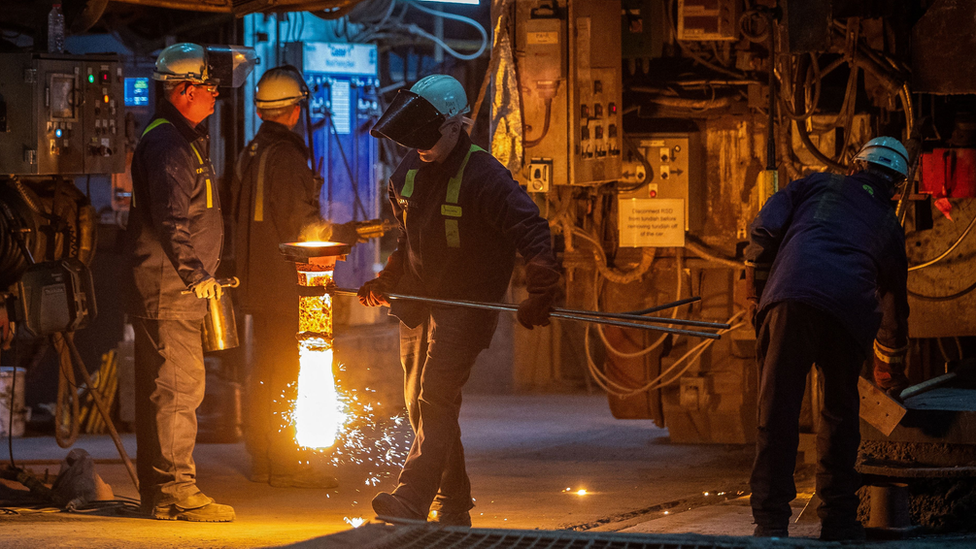
Up to 3,000 people across the UK could lose their jobs if Tata proceeds with its original plans
"If Tata is not prepared to listen then we could be heading towards a very significant industrial dispute," he added.
"Whilst the unions are braced for bad news, we are prepared to fight."
The GMB union said "compulsory job losses were wholly avoidable".
Tata Steel said it was "committed to meaningful information sharing and consultation with our trade union partners about the plan to develop sustainable steelmaking".
It said it would be not be appropriate to make further comment while discussions were ongoing.
Workers facing uncertainty
The future of the steelworks at Port Talbot has been discussed for years, but the past few months have made life difficult for the workforce.
"I am married with two kids and a dog, and a nice lifestyle that this place supports," said Shaun Spencer, a 38-year-old electrical engineer at the harbour, which forms part of the sprawling Tata Steel site.
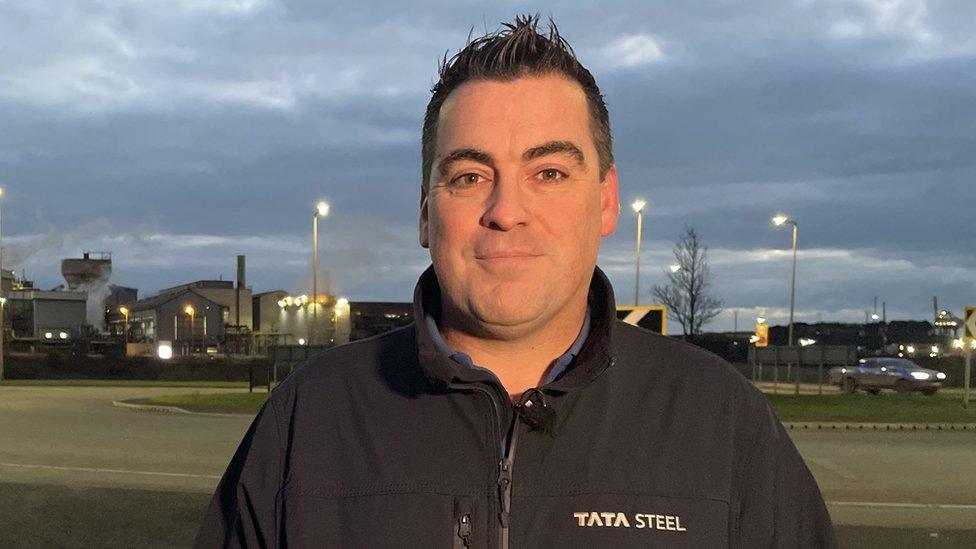
Shaun Spencer says working at Tata's Port Talbot site was a "badge of honour"
"I am quite proud to work here," he said. "It is a badge of honour to me. I just hope nothing happens to the place."
Mr Spencer said that while some of his colleagues were prepared to take voluntary redundancy, many others were not seeking a way out.
"Some people are happy knowing they have come to the end of their working life," he said.
"The voluntary redundancy option is attractive to them, whereas it's not to someone like myself or someone just starting out."
Suppliers reliant on Tata
Desnie Hill, financial manager at Bartlett Engineering, in nearby Baglan, Neath Port Talbot, has seen the company grow to become a key supplier for Tata Steel.
She estimates that 90% of the company's work is directly or indirectly connected with the Port Talbot operation.
"What we do is hunker down and hope for the best," she said. "It's just a lot of uncertainty."

Desnie Hill says 90% of her company's work is connected with Tata's Port Talbot plant
Ms Hill said the company had witnessed multiple takeovers at the plant, from the days of British Steel and Corus, to the acquisition by Tata in 2007.
"If you think we've got over a hundred suppliers ourselves, it's got that knock-on effect then. It's like a house of cards, a domino effect," she added.
What was Tata's original plan?
In November 2023, a planned announcement by Tata about the future of its UK steel operations was cancelled at the last minute.
Unions claimed the company was preparing to close both blast furnaces at Port Talbot by the spring of 2024, with the loss of up to 3,000 jobs across the UK.
Tata Steel currently employs 8,000 people, with around 4,000 based at the UK's largest steelworks in Port Talbot.
The move is part of the company's efforts to stem financial losses and transition to a greener method of producing steel.
Tata will spend £1.25bn on a new electric arc furnace in Port Talbot, which includes a £500m subsidy from the UK government.
What did the unions propose?
Unions produced their own alternative plan which recommended at least one blast furnace remained in Port Talbot until the new electric arc furnace was ready to come online.
Its plan suggested around 700 jobs would go, but two of the unions were confident that this figure could be achieved through voluntary redundancies.
A third union, Unite, had originally backed this plan but later withdrew its support.
Instead, it proposed its own broader plan to encourage greater use of British-made steel and more investment in existing operations.

STEELTOWN MURDERS: Three murders - unsolved but never forgotten
UNMISSABLE DRAMA: When the Wolf is at the door, be very afraid

Related topics
- Published1 November 2023

- Published17 September 2023
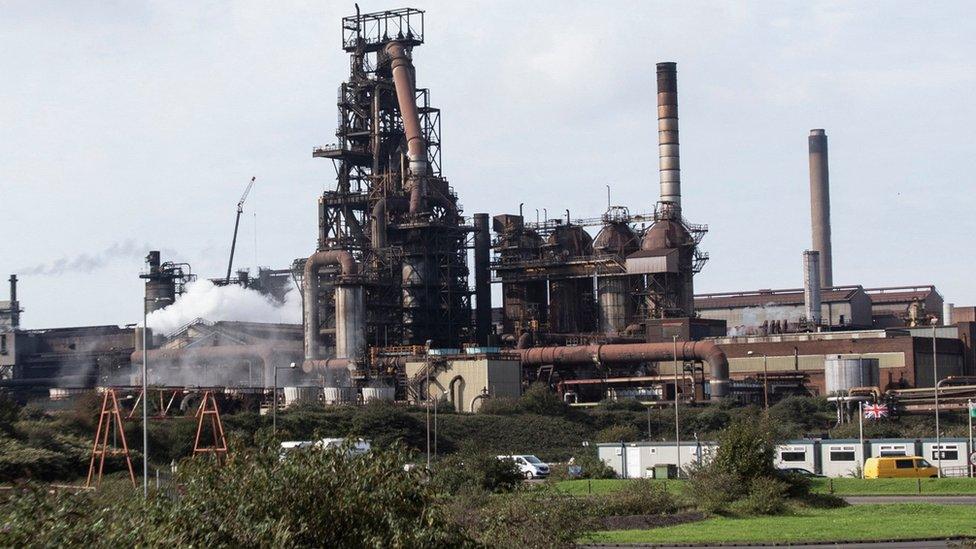
- Published15 September 2023
